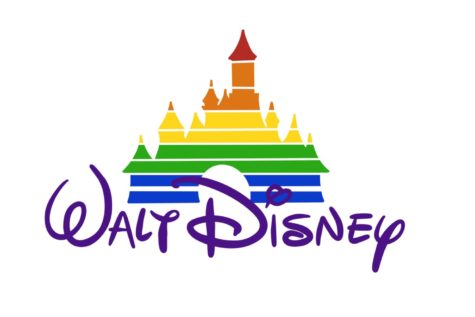OPINION | Corporate activism is about appeasement, not change

Many corporations prefer to avoid taking hard stances on social and political topics, minimizing the controversy associated with their name. Sometimes, however, companies like The Walt Disney Co. do something that catches the public eye. Recently, Disney’s silence on Florida’s Parental Rights in Education bill — also known as the “Don’t Say Gay” bill — faced criticism after Disney CEO Bob Chapek refused to publish a statement about the bill.
After facing heavy criticism for a lack of public statement, Chapek apologized for the silence and the pain it had caused — later condemning the bill during a shareholder meeting and calling Florida Governor Ron DeSantis to discuss the matter. Chapek also said via an apology letter that Disney is “increasing our support for advocacy groups to combat similar legislation in other states,” and is “creating a new framework for our political giving that will ensure our advocacy better reflects our values.”
But given that Disney and its CEO refrained from commenting on the subject until silence was no longer an option, we must ask if a corporation is capable of allyship. Neutrality, as seen by Disney’s silence on the “Don’t Say Gay” bill, can backfire in the same way voicing an opinion can. Corporations, like celebrities, are frequently in the public eye and therefore subject to immense criticism. In these situations, how can we determine if allyship is genuine or performative?
As seen after the death of George Floyd, corporations may play it safe with their public notices and release a statement which agrees with popular sentiment at the time. Even then, companies like Nike and Disney released statements condemning racism, focusing on social issues and not specifically the murder of Floyd. In a similar vein, Disney’s reluctance to publicly oppose the “Don’t Say Gay” bill throws some doubt on the sincerity of their allyship. Disney’s efforts to avoid publicly discussing the bill certainly do not make points in their favor.
While Disney’s CEO said they “unequivocally stand in support of our LGBTQ+ employees,” and insists that a lack of a statement does not indicate a lack of support, vague promises to “reassess” political donations and advocate for lasting change by releasing more Disney content does not directly translate to allyship — it translates to verbal support. Words which cost nothing to say, incite little change and as of now have no actions to back them up.
Given that Chapek’s letter said that he believes corporate statements “do very little to change outcomes or minds,” it is arguably invalid to consider this public statement allyship so much as damage control. Corporations, particularly ones which exclusively voice an opinion when the public demands it, are far from allies. Instead, we might regard them as actors — performing allyship to stay in the good graces of the general public. Given that Disney is an entertainment company, we can assume they are very familiar with the art of pretending.
Your donation will support the student journalists of Tulane University. Your contribution will allow us to purchase equipment and cover our annual website hosting costs.




Peter • Apr 18, 2022 at 8:41 pm
Good article. The vague activisim is also a great marketing opportunity for corporations to leverage any situation to their benefit. June’s Pride Month has turned into a corporate sponsored pep-rally instead of addressing needed change.